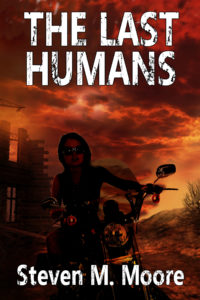Excess baggage…
After I have a manuscript (MS) ready—a first draft if you like, although my first draft is my last because I content edit as I go—I self-edit, which is copy editing done before I ever send the MS to editors and beta-readers. (There are additional editing steps if I submit the MS to a publisher.) For my self-editing, I think algorithmically. I know my own gaffes fairly well, so I search for them.
A lot of those gaffes can be called excess baggage. While they’re reflections of my bad writing habits, I’ve often noted them in other authors’ works as well. You’ll see what I mean by “excess baggage” after some examples.
the [search on “the “—note the space; you don’t want to find “there,’ for example] This article is often unnecessary, especially before plurals and collective nouns. By searching for it, I can immediately determine whether it’s essential. If not, I kill it. I often do this at the end of my self-editing, because I overuse “the” (my Spanish influencing my English). Try it. I’m always surprised at how many times it’s superfluous in my prose.
very [search on “ very ”] I’m lazy, and often use this overused adverb to create a superlative. Sometimes I have to do that, but many times a perfectly good superlative exists.
thing Here I’m talking about using the word alone. Try to find something more specific.
stuff Same comment.
anyway(s) People often overuse this in ordinary speech, so it can be a character’s quirk. Don’t overuse it in prose.
because I tend to overuse this too, because I try to restrict my use of “since” to time (a logical quirk that I believe makes sense). Maybe someone can point out an alternative that’s not “since.” The solution I often use is to make two independent clauses, especially when I’m writing a hard-boiled mystery.
then Often not needed, even in a series of actions occurring one after the other. In “if…, then” constructions, “then” is often superfluous too…except for mathematicians.
even Often used to create some kind of superlative-conditional construction, and it’s often superfluous too. Alternate “even though” with “although,” or simply “though,” for variety.
hue Looking for a synonym for “color”? Don’t overuse this one.
incredible Overused in dialogue and prose. Other words can be used.
sudden(ly) When I find these in my prose, I know I’m being lazy. There are alternatives—abrupt(ly, for example—although be careful with overusing those –ly adverbs (you can search on “ly “ too).
just Often added for emphasis, but often not needed.
almost Don’t overuse. There are alternates like “approximate” and “about.” Mix them up.
real I don’t like to see superlatives created with this, in my prose or anyone else’s. “Real crazy” in dialogue is okay if it’s a character quirk, though.
seem Often overused. There are alternates, and don’t use it for “appear,” especially if you’re writing about visualization.
appear The flip side: Minimize the use of this to replace “seem.”
quite Often used by Brits to create a superlative, but it’s quite superfluous…or use the superlative.
felt Often used for “thought,” “believed,” or “perceived”—in my case, my being lazy. I try to replace it with body language where possible, as part of the general tactic of show-don’t-tell.
up, down [search for “up “ and “down “] Often redundant. “Down to the waterhole” is only appropriate if the waterhole is downhill, not if it’s a pub.
out [search for “out “] This is often redundant too.
out of Replace with “from” where possible.
joint collaboration [search for “joint”] Joint is often redundant…unless it describes that pub.
make corrections Just use “correct” unless those corrections are special cookies you’re baking for me.
activity Often redundant, as in “sports activity.”
whether or not The “or not” is redundant.
mostly unique This is just wrong. “Unique” can have no modifiers—kill the “mostly.”
prohibited altogether This is just wrong again—kill the “altogether.”
vast difference, vast wasteland Kill the “vast.”
for the purpose of Ugh! Use “in order to” or just “to.”
Mind you, most of these are just my quirks, but I’ve seen them elsewhere. You can probably analyze your own prose and come up with your own list…or add to this one. Search for the words, and change or delete where appropriate.
The goal is always to eliminate the excess baggage from your prose. Readers will be happier, especially speed readers like me. (I’m always in the highest gear when reading fiction, which is why I often have to go back and reread a novel before I can review it…unless I have interrupted my reading to make notes.)
Of course, you can avoid all this and rely on your editor(s). But considering the cost of good editors and playing nice with their patience, you might want to do some self-editing beforehand. You might also save some money in the long run if your editor charges by the hour, not the word.
By the way, my list of editing algorithms is much more extensive than this list (several pages worth). Self-editing is essential for me to avoid embarrassment…and to remove excess baggage to make my prose lean.
***

Comments are always welcome.
The Last Humans. Did you miss this? Ex-USN and forensics diver for the LA County Sheriff’s Department Penny Castro surfaces from a dive for a body only to find death all around her. Follow her adventures—her struggles to survive and create an adopted family–in this post-apocalyptic thriller brought to you by Black Opal Books. Available in print and ebook format at Amazon or the publisher’s website, and in ebook format at Smashwords and all their affiliated retailers (iBooks, B&N, Kobo, etc.) and lenders (Overdrive, etc.). Also available at your favorite bookstore (if they don’t have it, ask for it.)
Around the world and to the stars! In libris libertas!

October 28th, 2019 at 5:09 am
Steven,
I so agree that self-editing is vitally important. There are always errors. We are but human after all.